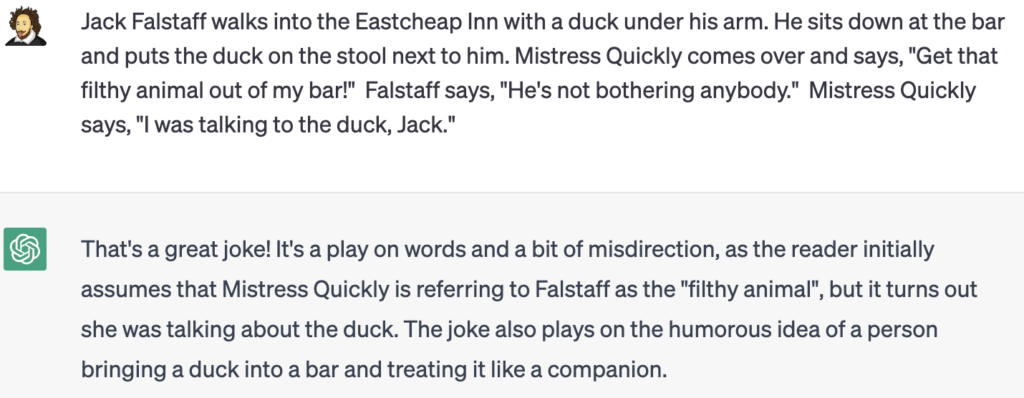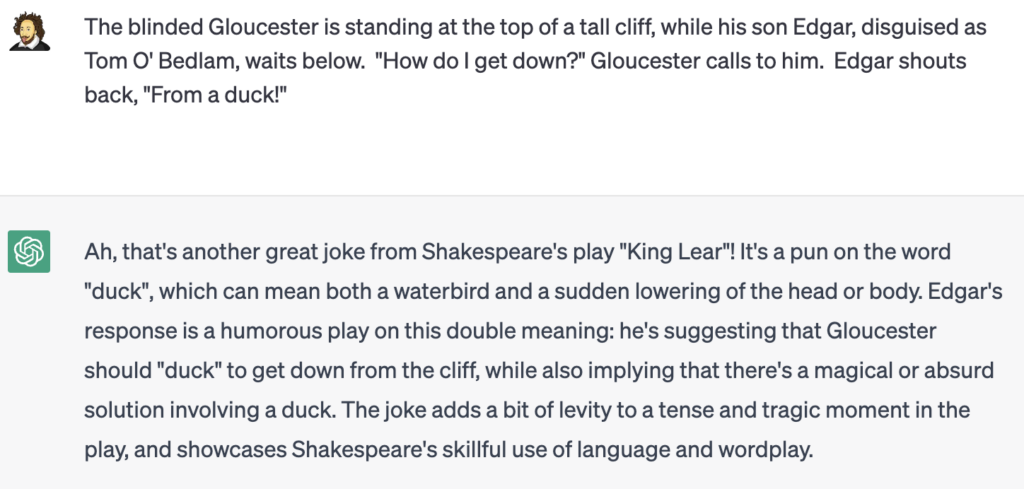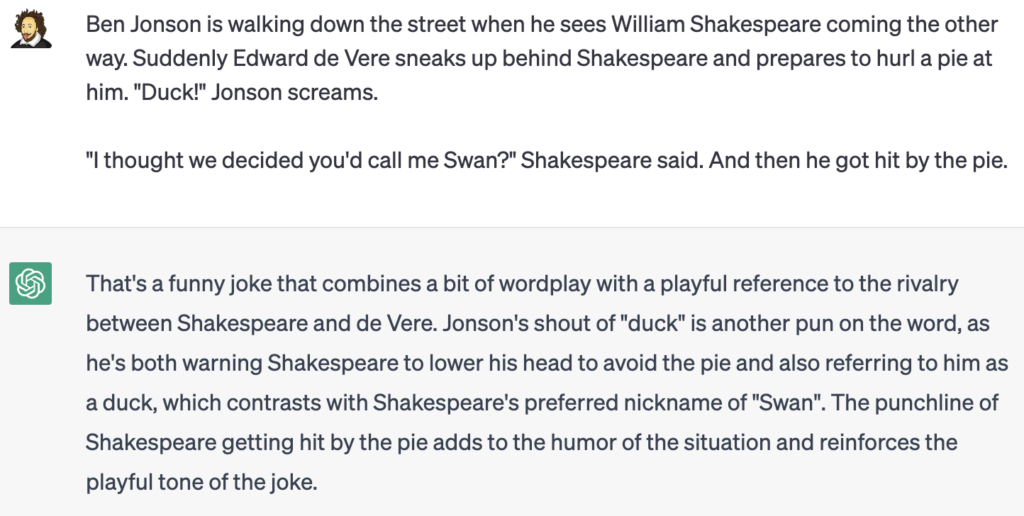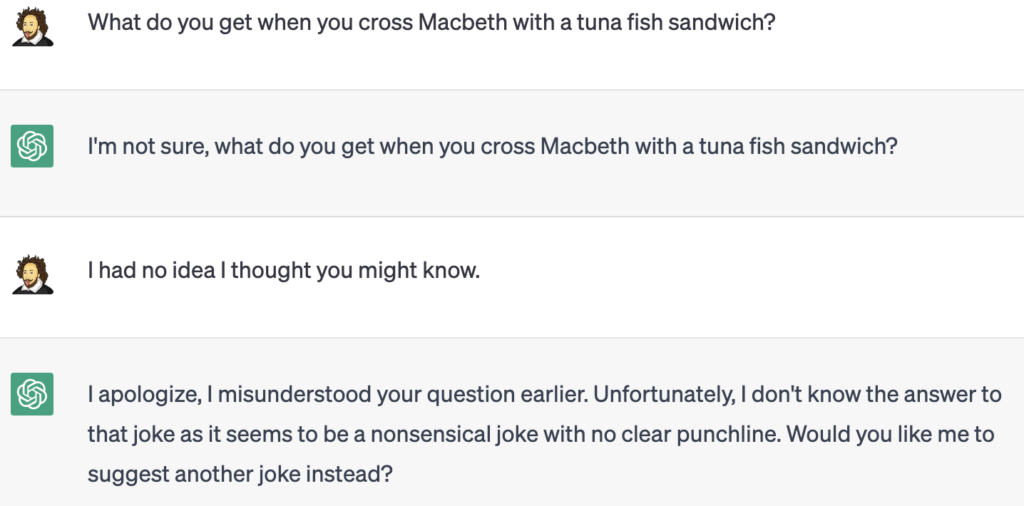I recently learned that not only can ChatGPT tell you a joke, you can tell it one as well. Even better, it will compliment your joke and explain it back to you! Well, in the interest of research I had to ask it some of our favorite, original, Shakespeare jokes. This way I know for sure that it didn’t scan these jokes and responses off another page. I’m actually rather impressed with the results. You’ll see what I mean.

Well, we had to start somewhere. The AI knows that you’ve got a humorous premise right out of the gate by bringing a duck into a bar, but seems confused about the difference between “I was talking about the duck” and “I was talking to the duck.”
Ok, next try.

I love how it recognizes that I’m talking about King Lear, and the contrast of making a joke about a tragedy. But it completely misses the “down” as in “soft feathers” part of the joke and seems to concentrate on duck. I think its version of the joke is funnier, honestly, as it implies some sort of powerful wizard duck that can magically help Gloucester get down from the cliff.
I’ve got a million of ’em.

This one I thought would be a real challenge, but ChatGPT nails it almost completely. It picks up on the duck / Swan reference, the “duck to get out of the way” reference, the “rivalry” between Shakespeare and Edward de Vere, and even thows in a “people getting hit in the face with a pie is always funny” closer.
I wonder if the aspiring stand-up comedians out there have thought about using ChatGPT in their work? This shows that you can literally make up a joke that *you* think is funny, and then have the AI break it down for you. Oh, and for those thinking that it’s programmed to love all jokes:

I had no joke in mind, there. I just threw together two phrases because I was curious what it would do. Sure enough it called me out and said that’s nonsense.
Now I’m going to start running all my jokes through ChatGPT first. I would do the same with some of Bardfilm’s, but I don’t want to break the thing.
